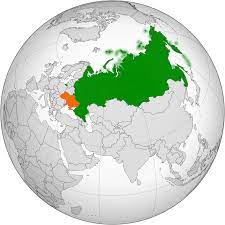I recently had the opportunity to visit with Dr. Ian Oxnevad, Director of Geopolitical Risk intelligence at Infortal Worldwide. This visit was for a podcast series, sponsored by Infortal Worldwide entitled Global Risk Review. Dr. Oxnevad is a seasoned expert in geopolitical risk intelligence, with a PhD in political science and a master’s degree in National Security Studies. In this concluding blog post we look at risks in doing business in China. In this concluding blog post 5, we consider the risks and opportunities for US companies continued business with and in the country of China.
Oxnevad’s perspective on US companies considering leaving China is rooted in his understanding of the potential challenges they face, including political instability and property confiscation. He strongly advises companies to expedite the process of moving their assets out of China, citing the high risks involved, especially in the event of a war. Oxnevad suggests alternatives such as nearshoring or reshoring to safer locations like the United States, and also highlights India as a potential investment destination due to its large domestic market and lack of political issues with the US.
In recent years, China’s strict COVID-19 response and aggressive foreign policy have created political challenges and global inflation. These factors have prompted US companies to consider moving their operations away from China. Smaller Asia-Pacific countries, caught in the crossfire of geopolitical risks, lack the economic stability and military capacity to handle potential conflicts. As a result, India is emerging as a more stable option due to its democratic governance and institutional safeguards. However, Pakistan, with its history of authoritarian rule, security risks, and close ties with China, presents a unique and complex business landscape.
China’s foreign policy has become increasingly aggressive, despite its internal issues with state-owned enterprise debt and lingering resentment over COVID-19. This aggressive stance has raised concerns among American companies and others, leading them to explore options for decoupling from China. The potential risks of war and the resulting instability have become a significant factor in their decision-making process. Companies are now considering near-shoring, ally-shoring, or reshoring their operations to minimize their exposure to China.
One of the key flashpoints in the region is the tension between China and Taiwan. China’s regular incursions into Taiwanese waterways and airspace have raised the possibility of a conflict erupting overnight, with no advanced warning. The situation is further complicated by China’s tensions with India in the Himalayas. Hand-to-hand battles between Indian troops and the Chinese military have occurred, highlighting the long-standing competition between the two countries. The potential for a massive war involving China, Taiwan, Japan, Australia, India, and the US is a real concern, with nuclear weapons adding to the instability.
Given these risks, US companies are exploring alternatives to China, with India emerging as a potential destination. India offers a more stable investment environment compared to China, with its democratic governance and experience with parliamentary procedures. While India has its own internal issues, such as corruption, it still maintains a commitment to democratic principles and the rule of law. Additionally, India’s large domestic market and its central location make it an attractive option for companies looking to diversify their supply chains.
However, it is important to note that India is not without its risks. The country has shown tendencies towards autocracy and strongman rule, although these tendencies are not as pronounced as in some other countries. India’s federal structure and institutional safeguards provide some protection against the consolidation of power by a strongman leader. While no country is immune to political risks, India’s democratic experience and commitment to democratic principles make it a relatively stable option compared to other countries in the region.
The potential risks in China have also raised the question of whether US companies should consider near-shoring or reshoring their operations back to the United States. The government can play a role in facilitating such efforts through tax incentives, grants, and other types of incentives. However, the decision to reshore or near-shore is not without tradeoffs. Companies must weigh the potential benefits of reduced exposure to geopolitical risks against the costs of relocating their supply chains and the potential impact on their relationships with Chinese partners and customers.
In conclusion, US companies are seriously considering leaving China amid the political challenges and geopolitical risks in the region. The potential for conflict, particularly involving Taiwan, has raised concerns about the stability of supply chains and the safety of investments in China. India is emerging as a more stable alternative, with its democratic governance and institutional safeguards. However, companies must carefully consider the tradeoffs involved in relocating their operations and the potential impact on their business relationships. The decision to leave China is not an easy one, but it is a reflection of the increasing uncertainties and risks in the region.
You can check Dr. Oxnevad in the full five-part Riskology by Infortal podcast series here.






